Can cast iron go from the fridge (or freezer) to the oven is a debatable question! Honestly, cast iron can go from the fridge to the oven in certain circumstances but precautions are necessary. First things first, cast iron is designed to cook food; it is not Tupperware, and it should not be treated like it is. The simple answer is to use the right tool for the job, but it is okay to temporarily store food in a cast iron in the fridge. Let’s dig deep in this context.
- Can You Put Cast Iron Skillets In The Fridge?
- Moving a Cast Iron Skillet From Fridge To Oven
- Let’s talk about Enameled Cast Iron in this context
- Conclusion
1. Can You Put Cast Iron Skillets In The Fridge?
Technically, cast iron can go in the fridge and the freezer. However, it is not recommended for long periods for a variety of reasons. It is possible to place cast iron in the fridge for a short period of time, so long as a couple of guidelines are followed.
Cast iron is incredibly durable but this does not mean that it cannot be damaged. The biggest risk in placing cast iron in the fridge is the damage that can be inflicted upon the cast iron. Never place hot cast iron in the fridge and never place a cold cast iron on a hot surface (oven or stovetop) as this will cause the skillet to crack. If you are doing one or the other, make sure the cast iron is at room temperature first to avoid temperature shock.
Placing Cast Iron Skillets in the fridge for long periods can add unwanted moisture to the skillet which will make it rust. Also, if the food you are storing in the cast iron is acidic, a negative chemical reaction will occur between the iron and the acid which can ruin the taste of the food.
Another disadvantage of storing food in cast iron for long periods is that it will ruin the seasoning of the cast iron. As the food sets, it hardens and damages the polymerization of the seasoning. Acidic foods are even worse. If you store your food in cast iron in the fridge overnight, clean the skillet immediately and reseason.
2. Moving a Cast Iron Skillet From Fridge To Oven
Cast iron cookware is the most versatile cookware in the kitchen. This means it can handle heat, cold, and just about everything in between. Nevertheless, it is made of iron and there are certain precautions that need to be followed when moving a cast iron from the fridge to the oven to prevent thermal shock. Simply put, thermal shock will crack your beloved cast iron. The following points would be helpful:
If you store food in a cast iron in the fridge and want to reheat it on the stove or in the oven, remove the dish from the fridge at least 30 minutes in advance. If the cast iron has a lid on it, be sure to remove the lid so the condensation doesn’t ruin the food or the cast iron. The cast iron must be at room temperature before you reheat it so that it doesn’t crack.
It is best to warm the cast iron slowly before the actual cooking or reheating process. Basically, instead of preheating the stove or oven, place the cast iron on the heating surface while it is preheating. This technique will bring the cast iron to an adequate temperature at an acceptable pace. The number rule in this process is to never, under any circumstances, place a cold cast iron on a hot surface.
Although there is some debate on this subject, a cast iron should always be reseasoned after this cold-to-hot process. Or, the hot-to-cold process. This seasoning not only protects the cookware, it prevents potentially off-flavors in the next dish.
3. Let’s talk about Enameled Cast Iron in this context
Enameled cast iron is the exception to this rule. Enamel is a glass coating over the cast iron that provides protection to the cookware without having to season it. As such, enameled cast iron can be stored in the fridge or freezer and reheated.
The benefit of enameled cast iron is that food can be safely stored in the fridge with no harmful benefits to the cookware or the food. Since enameled cast iron does not need to be seasoned, there is no risk to the seasoning that classic cast iron cookware faces.
The bottom line is, that if you require keeping your cast iron in the fridge for longer than a couple of hours, enameled cast iron is the best option. If you only have classic cast iron, it can still be done, so long as certain precautions (mentioned above) are taken.
4. Conclusion
Coming back to the original question - Can cast iron go from the fridge to the oven? The answer is no. Cast iron provides an excellent base for cooking. Withstands very high temperatures, stores heat perfectly and conducts heat evenly into the oven. Having said that, it can be fragile and crack with the sudden change in temperature. Therefore, it is always better to allow the skillet/pot to come to room temperature first. .
Please visit pots and pans and browse through the beautiful, wide range of cast iron cookware. It’s a beautiful blend of modern technology and aesthetic designing.

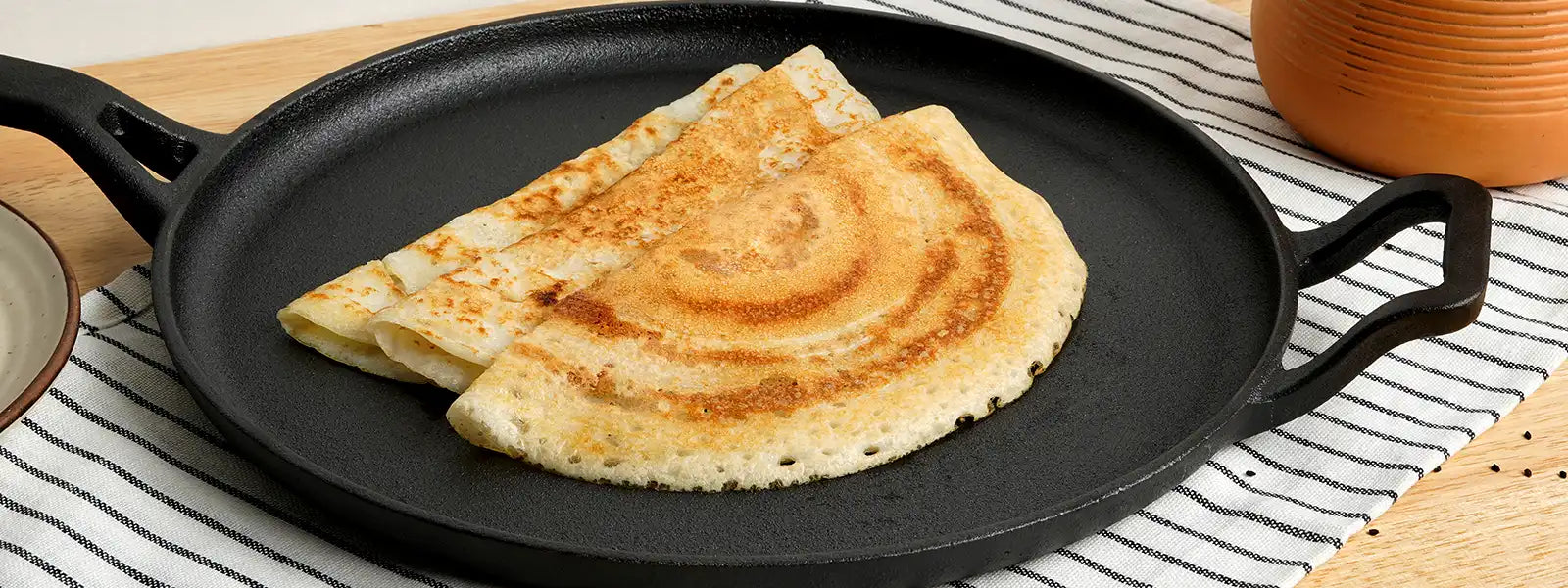
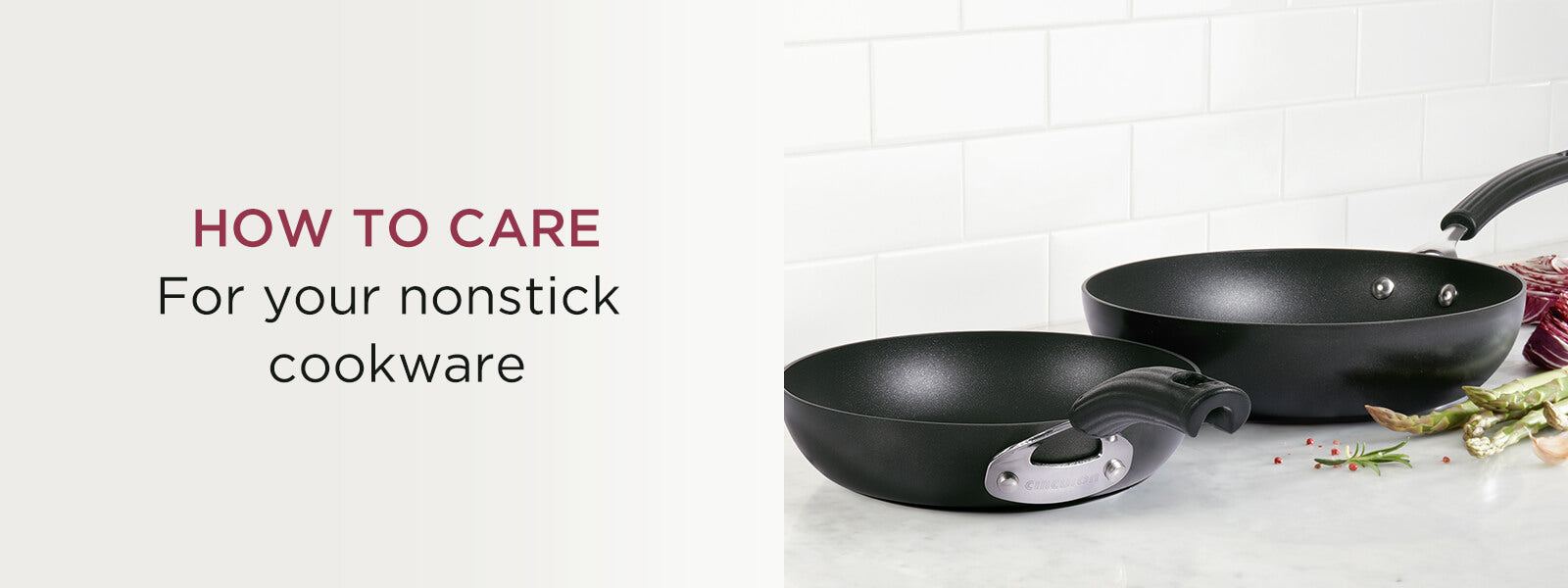
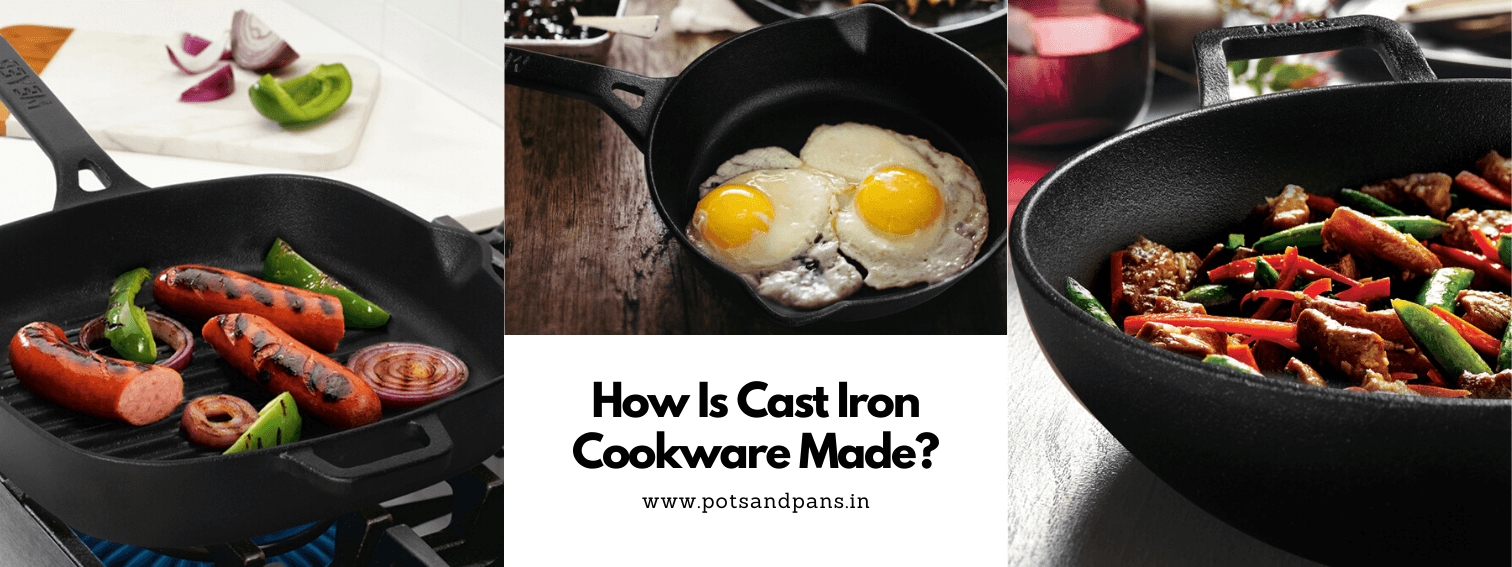
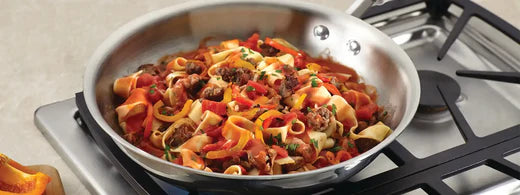
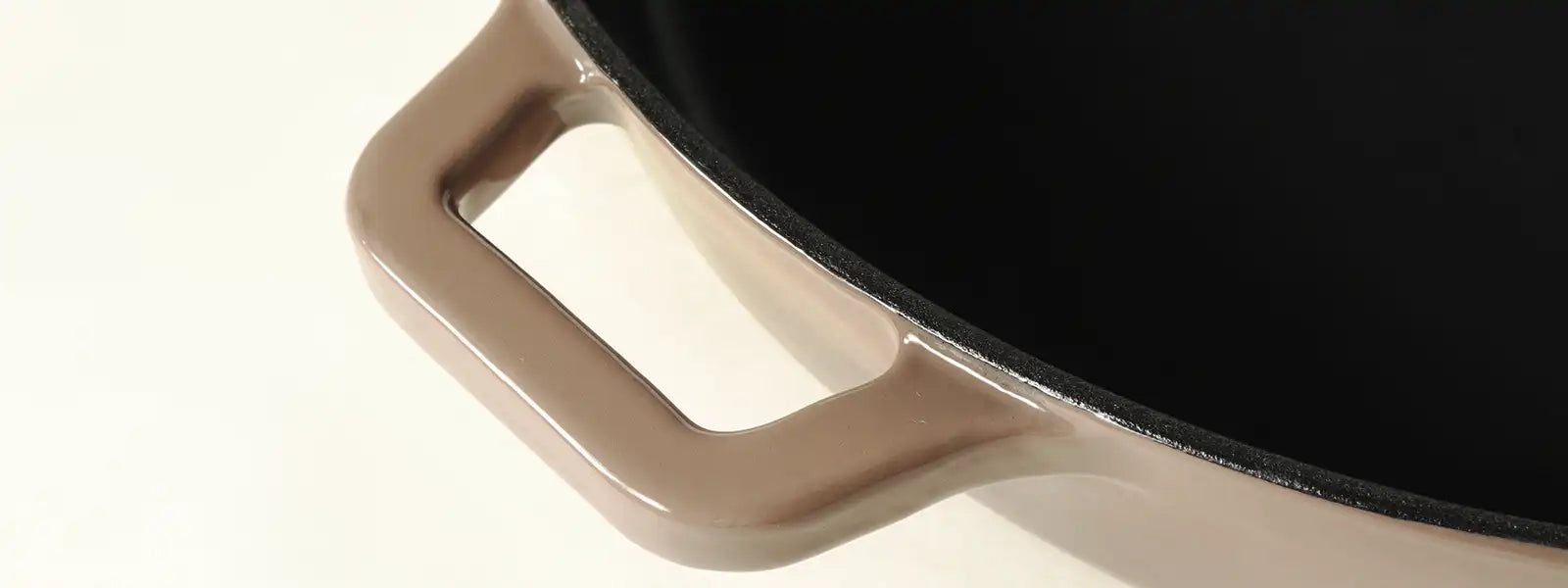
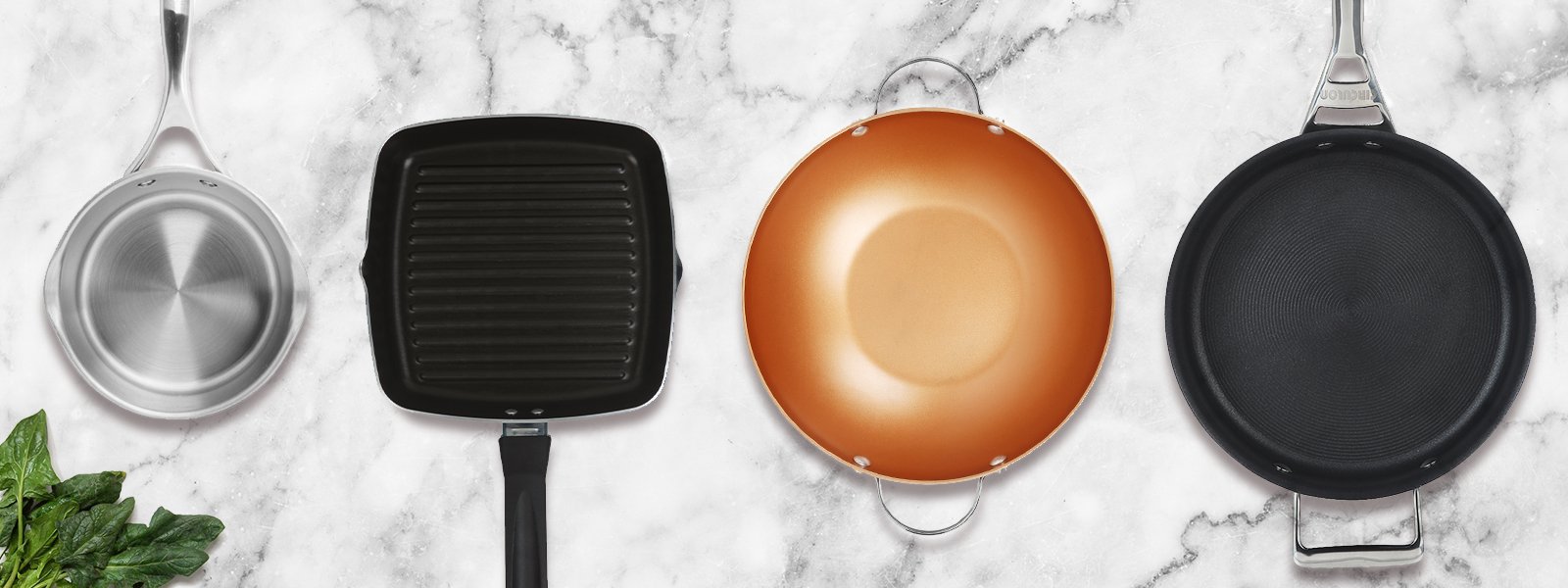
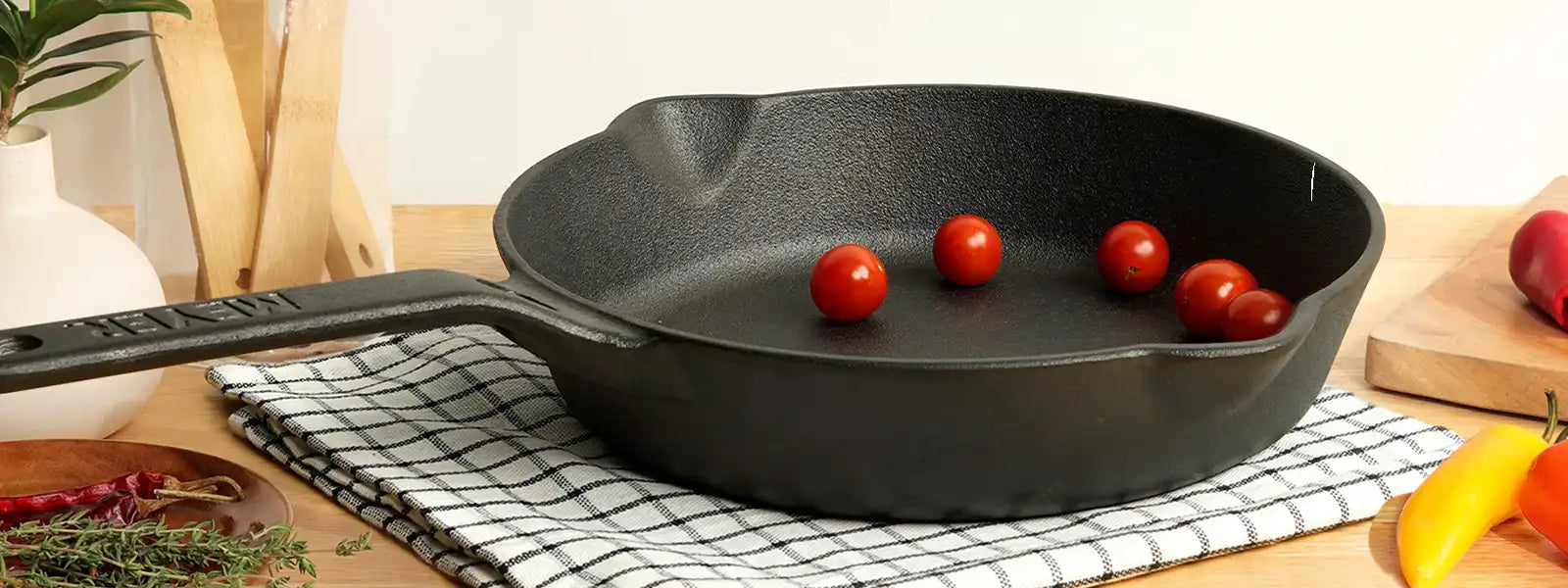
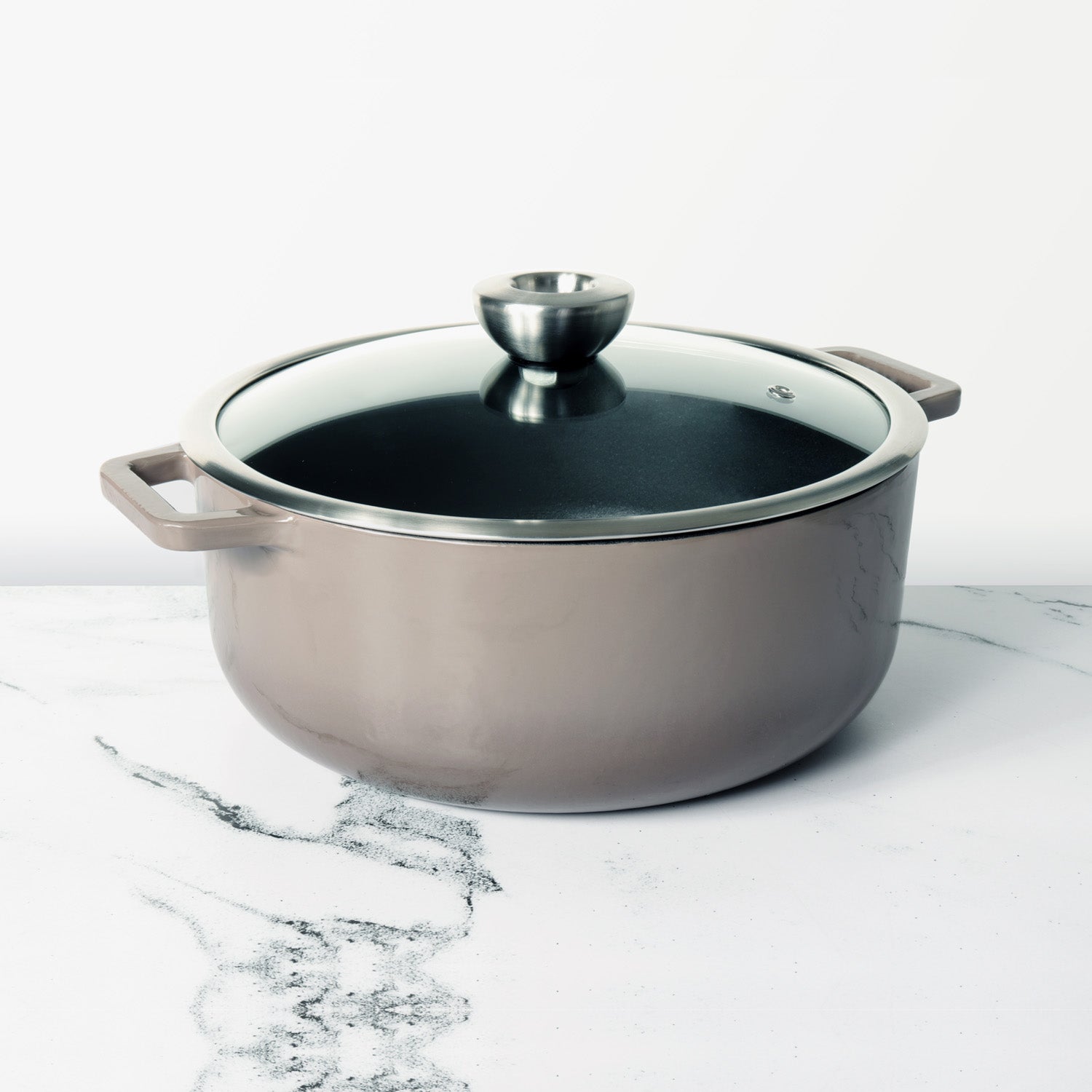
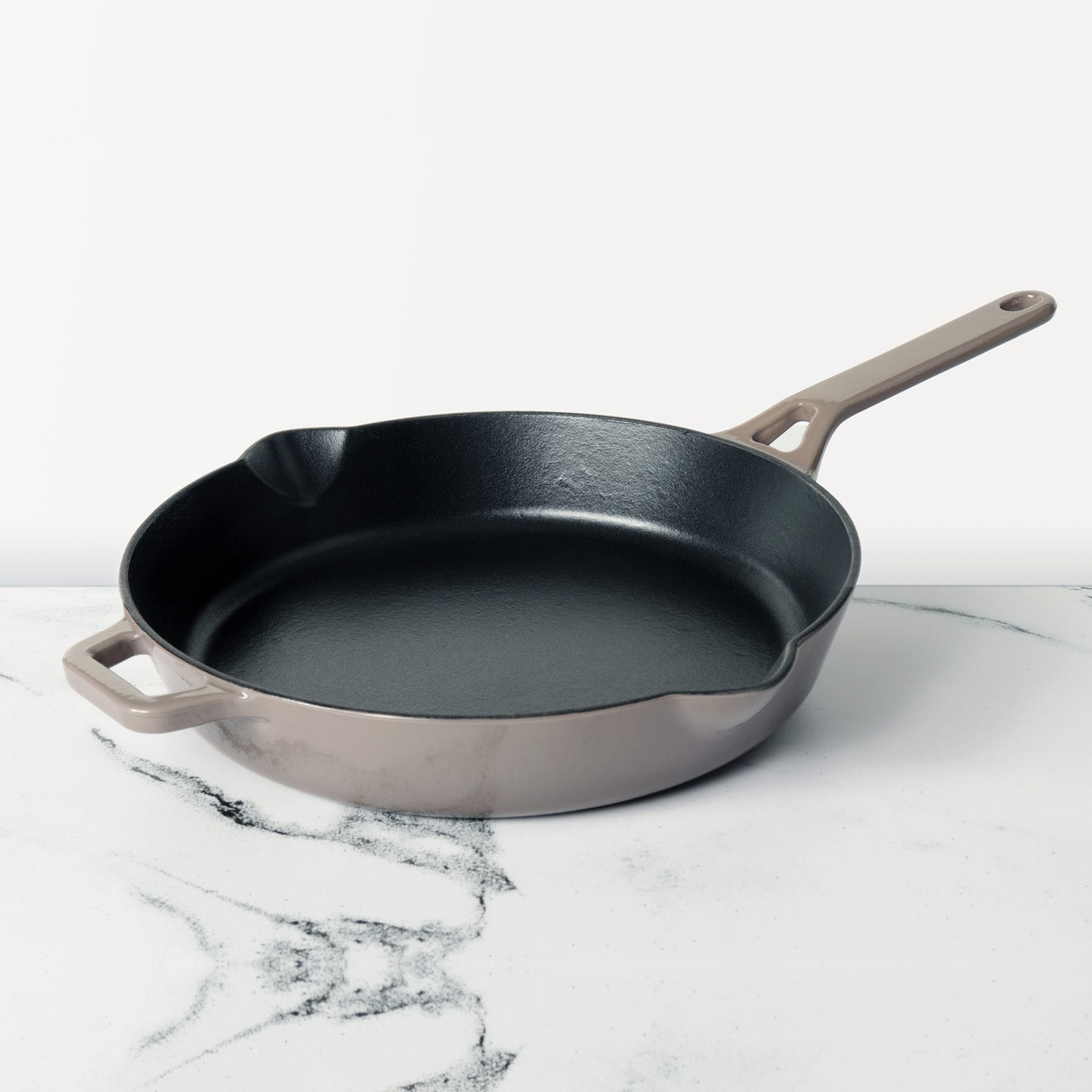




Leave a comment